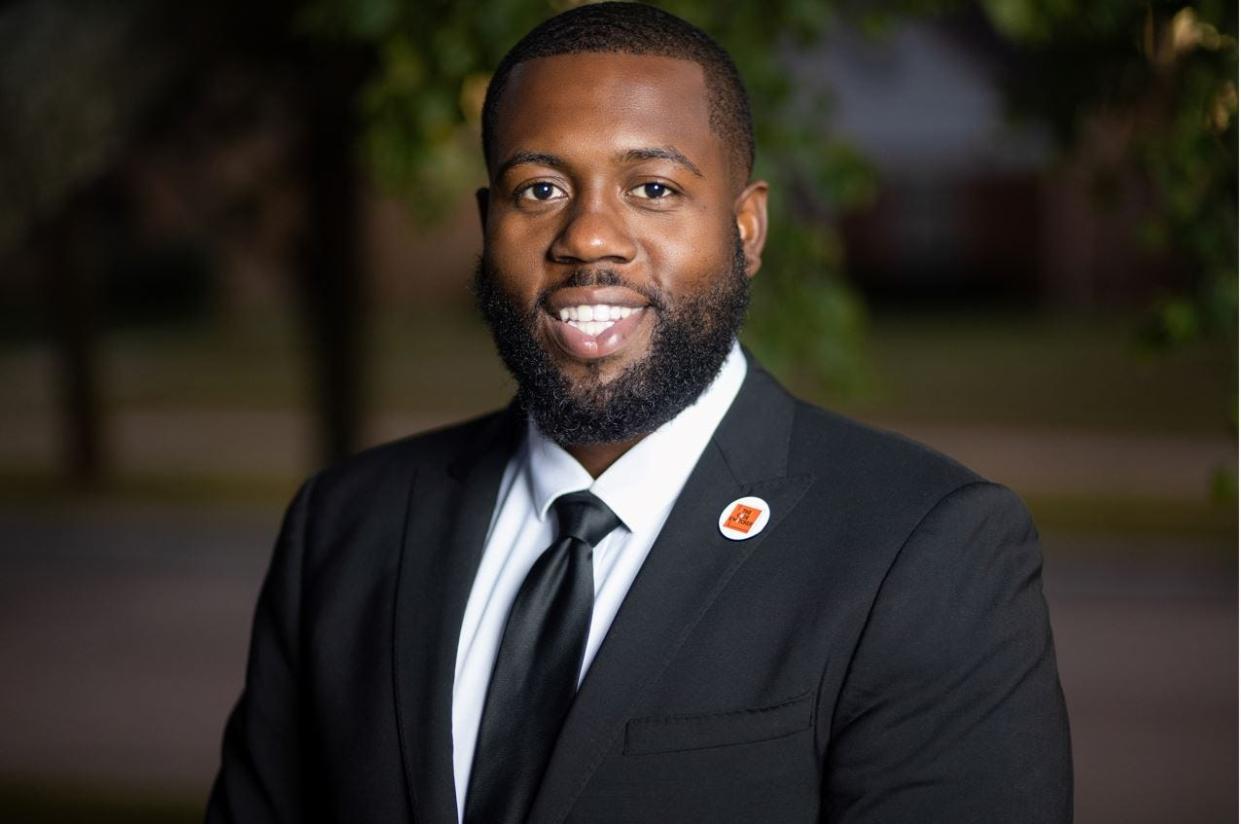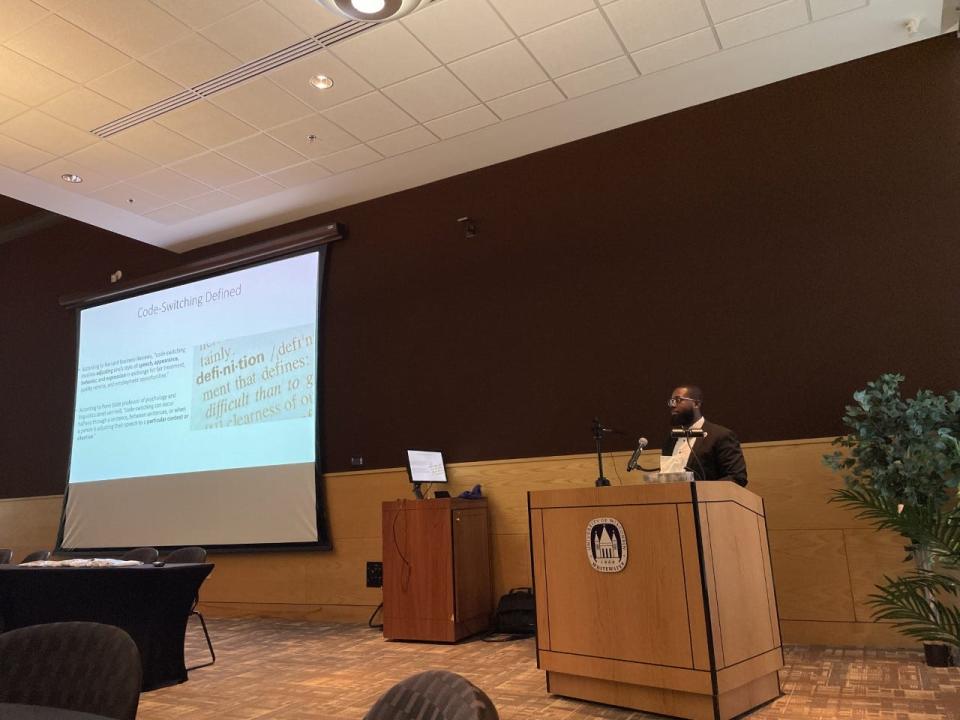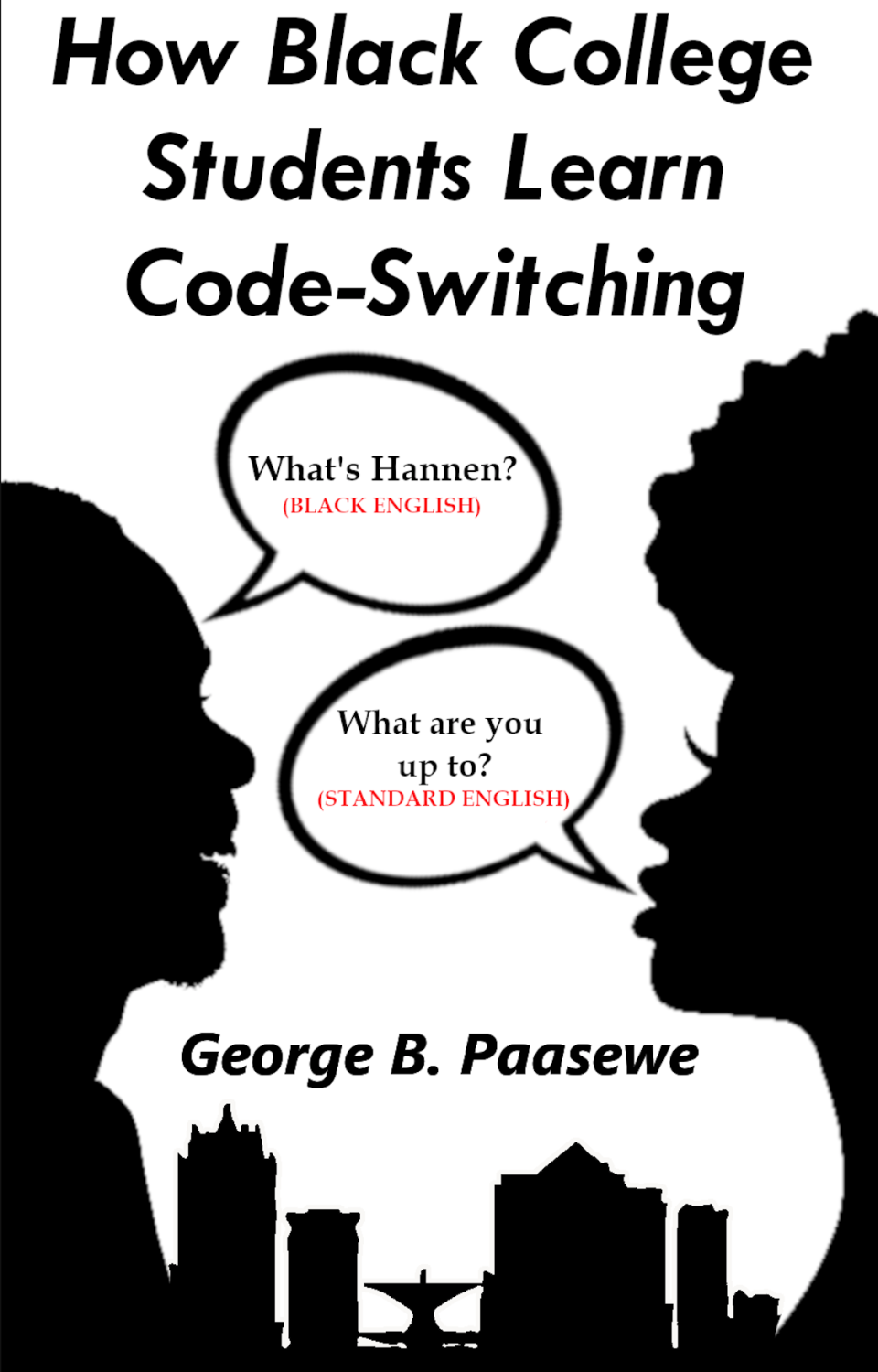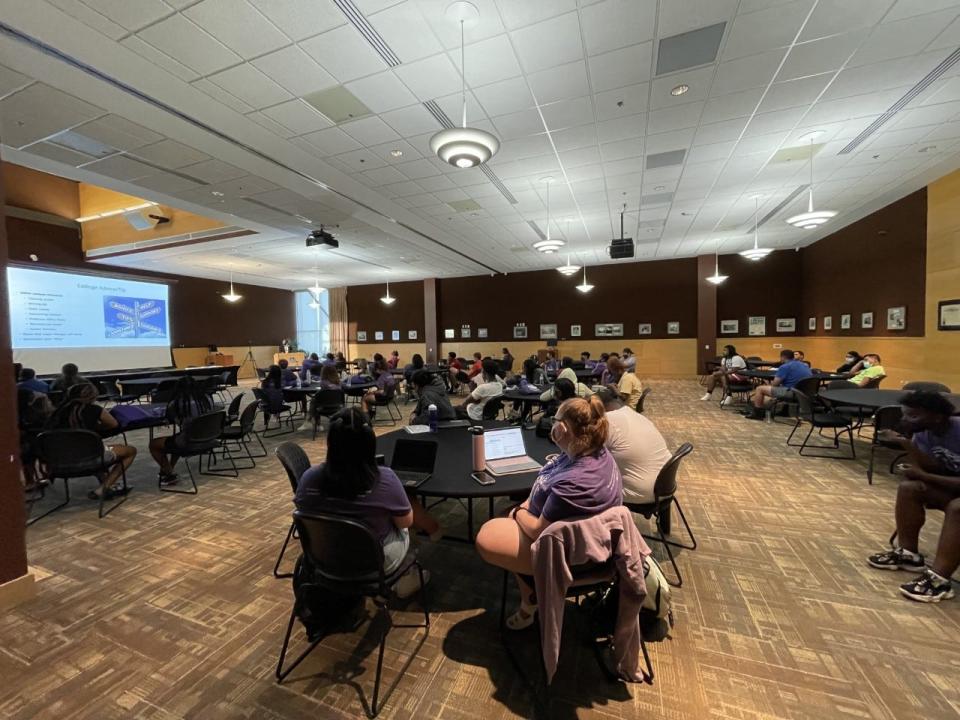How can code-switching be used as a positive? This Wauwatosa professor wrote a book about it

Code-switching: It's a term that you might hear on occasion, but what does it really mean?
George Paasewe, a Milwaukee area professor and author, has made it his goal to research and share the benefits of code-switching, specifically as it relates to people of color.
Paasewe attended the University of Wisconsin-Whitewater, and, as a Black student, he was attending a university where only about 5% of the student population looked like him.
That's where he first learned about the concept. Paasewe defines code-switching as "the practice of adjusting one’s style of speech, appearance, behavior and expression to a particular context or situation."
"It was something that I noticed myself doing a lot on the college campus, especially when it came to interacting with my professors or mentors; I noticed myself code-switching," Paasewe said.
Five years after attending that college, Paasewe has now written a book that's being used on college campuses nationwide.
"How Black College Students Learn Code-Switching," which Paasewe self-published in 2020, examines how code-switching can break the communication barrier between cultures.
Paasewe started to research the topic while studying at UW-Whitewater in 2015. He talked to students on campus about their experiences.
"And the whole purpose was to just assess their thoughts, their feelings and their experiences and even their challenges of being students of color at a predominantly white institution," he said.
Now Paasewe is a professor of sociology at Bryant & Stratton College in Wauwatosa. He also uses code-switching as he connects with people from different backgrounds to meet them where they're at.
He's made it his goal to educate others about how code-switching can be used as a positive.

Do you code switch?
"Code-switching is something that we all do as human beings," Paasewe said.
One example is how individuals talk to family or friends, compared to how they talk to their boss or co-workers.
"More than likely, your speech, or appearance, or behavior, your expression, transitions into a more formal and more professional and measured tone," Paasewe said.
Code-switching can be used to identify with those of different genders, ethnicities, ages, socio-economic backgrounds, sexual orientations, religions and more.

It can also benefit students of color who are learning at predominately white institutions. A" predominantly white institution" describes institutions of higher learning in which people with white ethnicity account for 50% or greater of the student enrollment, according to the Encyclopedia of African American Education.
Paasewe recognizes that students of color can experience challenges navigating predominately white spaces due to lack of support, microaggressions and even racism.
"We've found that the tool of code-switching can help people, especially students of color, establish new connections with individuals outside of their race and also open up new doors for advancement, when they utilize the tool of code-switching in the right environment," Paasewe said.
Code-switching can be used to break down communication barriers and make new connections.
"Language differences between cultures can serve as a roadblock. In these instances, code-switching has value because it allows one to participate in the larger, more diverse community," Paasewe said.
Paasewe added that it's important to maintain your own identity even while code-switching. And there can also be adverse effects when it comes to code-switching, including a feeling of not belonging or mental or emotional fatigue.
The Code-Switcher

Paasewe has given lectures about his book and research at colleges nationwide.
During those speaking engagements, he discusses the advantages and disadvantages of code-switching. He also does training and workshops related to the topic, taking students and others through research study simulations, case studies and real-life scenarios.
Paasewe also started The Code Switcher, an "education-centered, self-publishing company," he explains.
The goal? To help aspiring authors publish their own books.
He started the idea when writing his own book.
"While I'm writing that book I faced numerous obstacles and challenges within the book writing and publishing process," he said.
"I recognize the need to provide education to others, teaching them how to prevent those roadblocks that I faced."
The company offers e-courses about how to write and publish a book.
Earlier this year, Paasewe won $10,000 on “Project Pitch It” on WISN-TV Channel12 for the startup.
Learn more about The Code Switcher at thecodeswitcherllc.com.
Evan Casey can be reached at 414-403-4391 or evan.casey@jrn.com. Follow him on Twitter @ecaseymedia.
Our subscribers make this reporting possible. Please consider supporting local journalism by subscribing to the Journal Sentinel at jsonline.com/deal.
DOWNLOAD THE APP: Get the latest news, sports and more
This article originally appeared on Milwaukee Journal Sentinel: Wauwatosa professor George Paasewe writes book about code-switching

